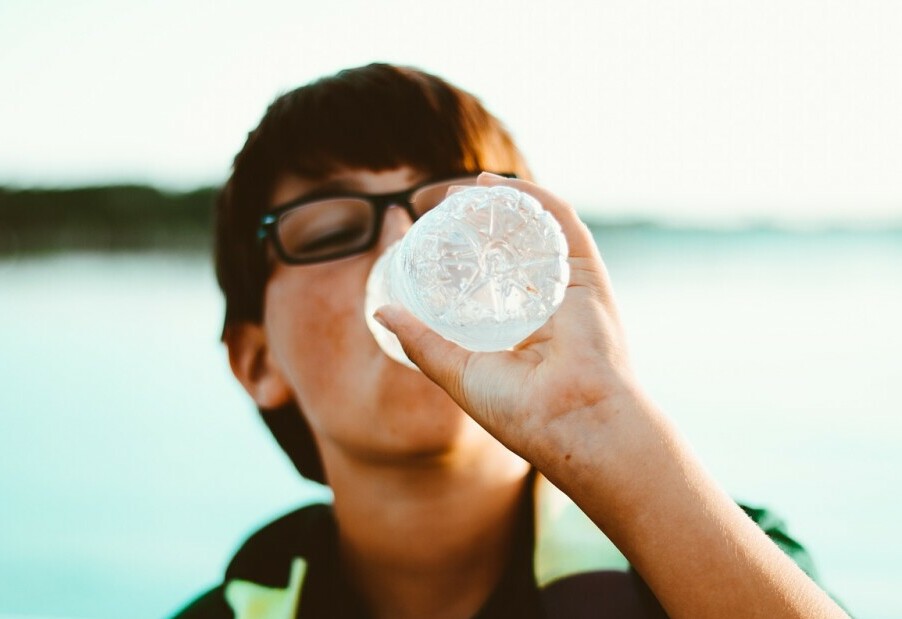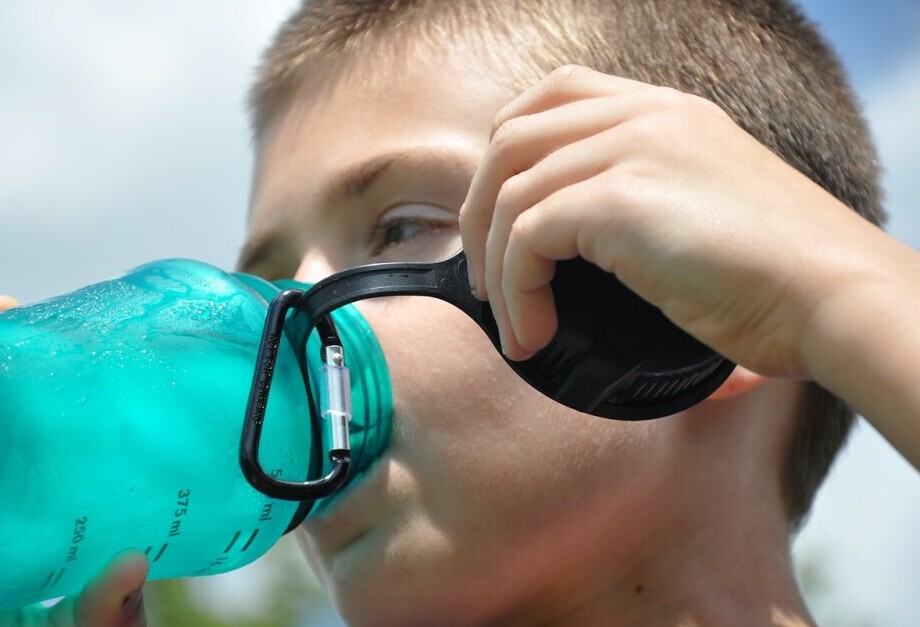Understanding Hydration: What Does It Mean for Your Health?
Explanation of hydration and its biological significance
Hydration, the process by which water molecules interact with and surround molecules or ions, plays a crucial role in various biological processes. Water’s unique properties, such as its polarity, high dielectric constant and ability to form hydrogen bonds, make it an essential component of life.
Hydration affects the structure and function of biomolecules, including proteins, nucleic acids and lipids. It influences their solubility, stability and reactivity. For instance, hydration of proteins helps maintain their proper conformation and facilitates interactions with other molecules.
Dehydration, on the other hand, can lead to protein denaturation and loss of function. Hydration also plays a vital role in cellular processes such as metabolism, transport and signaling. It regulates body temperature through sweating and evaporation. Proper hydration is essential for maintaining electrolyte balance, preventing dehydration and ensuring optimal physiological functions.
Understanding hydration at the molecular level is crucial for comprehending the intricate mechanisms underlying biological processes and developing therapeutic strategies for various diseases.

Overview of water’s role in maintaining bodily functions
Water plays a vital role in maintaining bodily functions and overall health. It constitutes approximately 60% of an adult’s body weight and is involved in numerous physiological processes.
Water aids in regulating body temperature through sweating and evaporation, lubricates joints and tissues, and acts as a shock absorber for the brain and spinal cord. It also facilitates the transportation of nutrients and oxygen to cells, removes waste products and aids in digestion and absorption of nutrients. Additionally, water is essential for maintaining electrolyte balance, which is crucial for nerve and muscle function.
Proper hydration supports cognitive performance, mood regulation and energy levels. Dehydration, on the other hand, can lead to fatigue, impaired cognitive function and various health complications. Maintaining adequate water intake is essential for optimal bodily function and overall well-being.

Identifying signs of proper hydration vs. dehydration
Recognizing the signs of proper hydration versus dehydration is essential for maintaining a balanced fluid intake. Proper hydration is characterized by clear or pale yellow urine, infrequent urination (approximately every 2-4 hours), absence of thirst, moist skin and lips and a lack of fatigue or dizziness.
Dehydration, on the other hand, manifests with dark yellow or amber-colored urine, frequent urination (more than 8 times per day), intense thirst, dry skin and lips, sunken eyes, fatigue, dizziness and confusion. Additionally, dehydration can lead to headaches, muscle cramps and constipation.
It is important to consume fluids throughout the day, especially during physical activity or in hot weather, to prevent dehydration and maintain proper hydration. If signs of dehydration persist or worsen, it is advisable to seek medical attention.
The Multiple Benefits of Staying Hydrated
Physical performance enhancement through optimal hydration
Water constitutes a significant portion of the human body and its availability directly influences various physiological processes that affect athletic performance. Proper hydration ensures efficient transportation of nutrients and oxygen to working muscles, regulates body temperature through sweat evaporation and lubricates joints and tissues.
Dehydration, on the other hand, can lead to decreased muscle strength, impaired cognitive function, reduced endurance and increased risk of heat-related illnesses. Athletes should consume fluids regularly throughout the day, even in the absence of thirst and adjust their intake based on factors such as exercise intensity, duration and environmental conditions.
Proper hydration strategies, including consuming electrolyte-rich beverages during prolonged or intense exercise, can help athletes optimize their physical performance, enhance recovery and minimize the risk of dehydration-related complications.
Cognitive function and how hydration influences mental health
Hydration plays a crucial role in maintaining optimal cognitive function and mental well-being. Adequate fluid intake ensures proper blood flow to the brain, delivering essential nutrients and oxygen while removing waste products.
When the body is dehydrated, cognitive performance can be significantly impaired, leading to reduced concentration, attention span, and memory consolidation. Dehydration can also exacerbate symptoms of mental health conditions such as anxiety, depression and fatigue.
Conversely, maintaining proper hydration levels has been associated with improved mood, cognitive flexibility and overall mental clarity. Studies have shown that even mild dehydration can negatively impact cognitive function, highlighting the importance of staying hydrated throughout the day. Therefore, ensuring adequate fluid intake is essential for maintaining optimal cognitive performance and promoting mental well-being.

Hydration’s role in detoxification and kidney function
Hydration plays a pivotal role in the body’s detoxification processes and kidney function. Adequate water intake facilitates the elimination of metabolic waste products and toxins through urine, reducing the burden on the kidneys and preventing the accumulation of harmful substances in the body.
Moreover, water serves as a medium for transporting nutrients and oxygen to cells, aiding in cellular metabolism and overall bodily functions. Proper hydration ensures optimal blood volume, which is crucial for maintaining blood pressure and delivering oxygen and nutrients to tissues. Additionally, water helps regulate body temperature by promoting sweating, which cools the body through evaporation.
Furthermore, staying hydrated supports cognitive function, as dehydration can lead to fatigue, decreased concentration and impaired decision-making abilities. Therefore, maintaining adequate hydration is essential for the efficient functioning of the kidneys, detoxification processes and overall well-being.
The impact of hydration on skin health and appearance
Maintaining adequate hydration is crucial for preserving the health and youthful appearance of the skin. Water constitutes a significant proportion of the skin’s composition, contributing to its firmness, elasticity and overall plumpness.
When the skin lacks sufficient hydration, it becomes dry, rough and more susceptible to wrinkles and fine lines. Dehydration can also impair the skin’s natural barrier function, making it more vulnerable to environmental stressors and irritants.
Conversely, proper hydration helps maintain the skin’s moisture balance, promoting a healthy, radiant complexion. It enhances the skin’s ability to absorb nutrients and eliminate toxins, supporting its natural regeneration and repair processes. Additionally, hydration plays a vital role in regulating body temperature, ensuring that the skin remains cool and comfortable.
By maintaining optimal hydration levels, individuals can effectively combat the signs of aging, prevent skin conditions like eczema and psoriasis and achieve a healthy, glowing appearance.

Weight management and the connection between hydration and metabolism
Maintaining a healthy weight is a multifaceted endeavor that encompasses various lifestyle factors including hydration and metabolism. The human body is approximately 60% water, emphasizing the crucial role of water in numerous physiological processes, including metabolism.
Metabolism refers to the intricate network of chemical reactions that convert food into energy and facilitate growth and repair. Adequate hydration is essential for optimal metabolic function. Water serves as a medium for transporting nutrients and hormones throughout the body, aiding in the breakdown of food and the elimination of waste products.
Moreover, water helps regulate body temperature, preventing overheating, which can hinder metabolic processes. Additionally, staying hydrated can enhance satiety, reducing the likelihood of overeating and promoting weight management.
Conversely, dehydration can lead to fatigue, decreased energy expenditure, and impaired cognitive function, all of which can hinder weight loss efforts. Therefore, maintaining adequate hydration is a cornerstone of effective weight management, supporting optimal metabolic function and promoting overall well-being.
Hydration for different demographics
Hydration requirements vary across different demographics due to factors such as age, gender, activity level and climate. Infants and young children have a higher proportion of body water compared to adults, making them more susceptible to dehydration.
As we age, our total body water content decreases, and the ability to concentrate urine diminishes, increasing the risk of dehydration in older adults. Men typically have a higher total body water content than women due to their larger muscle mass.
During pregnancy and breastfeeding, women have increased fluid needs to support the growth and development of the fetus and milk production. Individuals engaging in strenuous physical activity or living in hot climates need to consume more fluids to replace water and electrolytes lost through sweat.
Additionally, certain medical conditions, such as diabetes and kidney disease, can affect hydration status and require specific fluid recommendations. Understanding the unique hydration needs of different demographics is essential for maintaining optimal health and preventing dehydration.

Practical Tips for Improved Hydration Habits
Maintaining optimal hydration is crucial for overall well-being. Here are some practical tips to help you improve your hydration habits:
1. Set a Daily Hydration Goal: Determine your daily fluid requirement based on factors like age, weight, activity level and climate. Use a water bottle or app to track your intake.
2. Start Your Day with Water: Begin each day with a glass of water to rehydrate after a long night’s sleep and kick-start your metabolism.
3. Make Water Easily Accessible: Keep a water bottle or glass of water nearby at all times. Place water bottles in strategic locations like your desk, car or bedside table.
4. Flavor Your Water: If plain water seems bland, add natural flavors like slices of cucumber, lemon or mint. You can also opt for unsweetened flavored sparkling water or herbal tea.
5. Eat Water-Rich Foods: Incorporate fruits and vegetables with high water content into your diet, such as watermelon, cucumber, celery and spinach. These foods can contribute significantly to your daily fluid intake.
6. Monitor Your Urine Color: The color of your urine can provide insights into your hydration status. Aim for pale yellow or light straw-colored urine, indicating adequate hydration. Dark yellow or amber-colored urine may suggest dehydration.
7. Avoid Sugary Drinks: Limit your consumption of sugary beverages like soda, juice and energy drinks. These drinks can contribute to dehydration and provide empty calories.
8. Hydrate Before, During and After Exercise: Drink water before, during and after physical activity to replenish fluids lost through sweat. Sports drinks can be beneficial for intense or prolonged exercise.
9. Pay Attention to Your Thirst: Thirst is your body’s natural signal for hydration. However, thirst can sometimes be mistaken for hunger. If you feel hungry try drinking a glass of water first.
10. Use Technology: Utilize smartphone apps or wearable devices that track your water intake and remind you to drink throughout the day.
Creative ways to make hydration an enjoyable daily practice
Maintaining adequate hydration is crucial for optimal health and well-being. While drinking plain water is the most direct way to meet your daily fluid needs, it can sometimes be challenging to consume the recommended amount. To make hydration an enjoyable daily practice, consider incorporating creative strategies that add flavor, variety and fun to your water intake:
- Infuse your water with natural flavors: Add slices of cucumber, lemon, lime or berries to your water bottle or pitcher. These fruits and vegetables infuse water with refreshing flavors, making it more appealing to drink. You can also try adding herbs like mint or basil for a unique twist.
- Create sparkling water at home: Invest in a soda maker or use a simple carbonation device to create sparkling water at home. The fizzy texture and refreshing taste of sparkling water can make it a more exciting alternative to plain water.
- Try flavored water enhancers: If you prefer flavored water but want to avoid added sugar, consider using water enhancers. These products come in a variety of flavors and can be added to your water bottle or glass to create a customized drink.
- Make fruit-infused ice cubes: Freeze fruit slices or berries in ice cube trays and add them to your water. As the ice cubes melt, they release natural flavors into the water, creating a refreshing and flavorful drink.
- Experiment with herbal teas: Herbal teas are a great way to stay hydrated while enjoying the benefits of various herbs. Try different types of herbal teas, such as peppermint, chamomile or ginger to find flavors that you enjoy.
- Use a water bottle with a filter: If you’re concerned about the taste or quality of your tap water, consider using a water bottle with a built-in filter. This can help improve the taste of your water and make it more enjoyable to drink.
Understanding the role of electrolytes and when to use them
Electrolytes are minerals that, when dissolved in water, produce electrically charged ions. These ions play a crucial role in various bodily functions, including maintaining fluid balance, regulating muscle contractions and transmitting nerve impulses.
Electrolytes are primarily obtained through the foods we consume and can also be supplemented through oral rehydration solutions or intravenous fluids. Understanding the role of electrolytes is essential for maintaining overall health and well-being. When the body loses excessive fluids, such as during intense exercise, prolonged sweating or certain medical conditions like vomiting or diarrhea, electrolyte imbalances can occur.
These imbalances can lead to symptoms such as muscle cramps, fatigue, nausea and, in severe cases, seizures or cardiac arrhythmias. Replenishing electrolytes through oral rehydration solutions or intravenous fluids can help restore electrolyte balance and alleviate these symptoms.
It’s important to consult a healthcare professional for guidance on appropriate electrolyte replacement strategies, especially for individuals with underlying medical conditions or during prolonged periods of fluid loss.

The importance of hydrating foods in your diet
Hydrating foods, such as fruits, vegetables and soups, play a crucial role in maintaining optimal hydration and overall well-being. These foods are rich in water content, which helps replenish fluids lost through daily activities, exercise and bodily functions.
Consuming hydrating foods aids in regulating body temperature, supporting digestion, and facilitating the absorption of essential nutrients. Moreover, the fiber content found in many hydrating foods promotes satiety, helping individuals feel fuller for longer periods and potentially aiding in weight management.
Additionally, hydrating foods are often packed with vitamins, minerals and antioxidants, which contribute to a balanced diet and support various aspects of health, including immune function, skin health and cognitive performance. Incorporating hydrating foods into one’s dietary routine is essential for maintaining proper hydration, promoting overall health and optimizing physical and mental well-being.
How to recognize and respond to environmental factors affecting hydration needs
Environmental factors can significantly impact an individual’s hydration needs. Recognizing and responding appropriately to these factors is crucial for maintaining optimal hydration levels. High temperatures, humidity and physical activity increase fluid loss through sweating, necessitating increased fluid intake.
Conversely, cold temperatures and low humidity reduce sweating, leading to decreased fluid needs. Additionally, certain medications, such as diuretics, can increase urine output, resulting in dehydration if fluid intake is not adjusted accordingly. Furthermore, altitude affects hydration needs, as the body loses more water vapor at higher elevations due to lower atmospheric pressure.
It is important to be mindful of these environmental factors and adjust fluid intake accordingly to prevent dehydration or overhydration which can have adverse effects on health and well-being.

I hope you have enjoyed, and will benefit from, this content. If you have questions or comments I’d love to hear from you in the ‘Leave a Reply’ section below.

Grant Rayner
